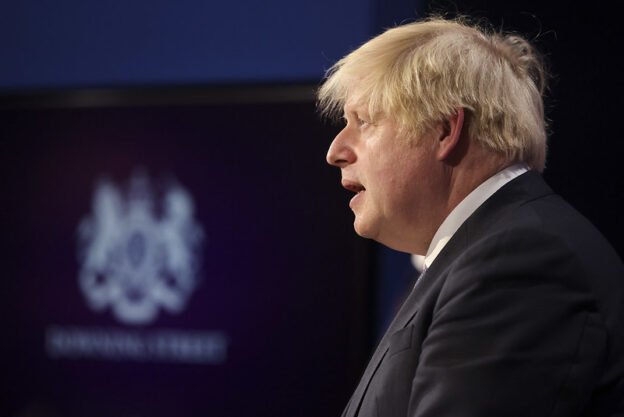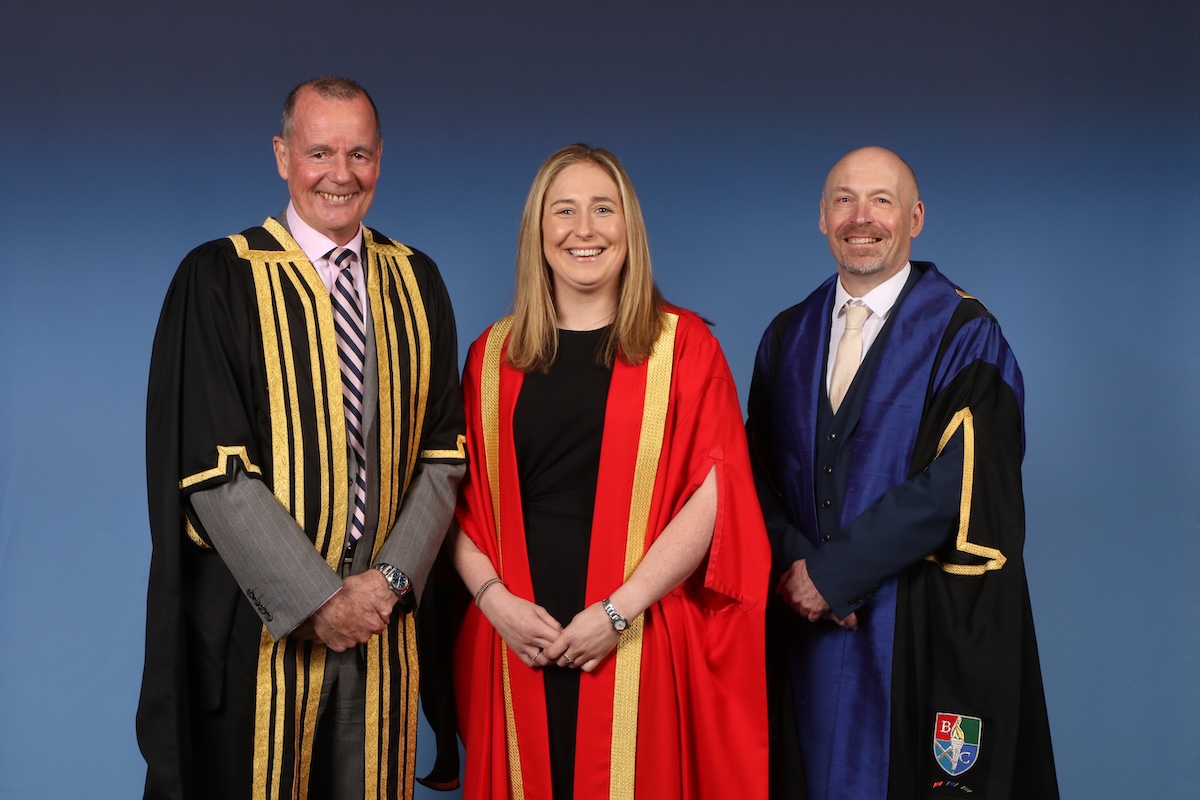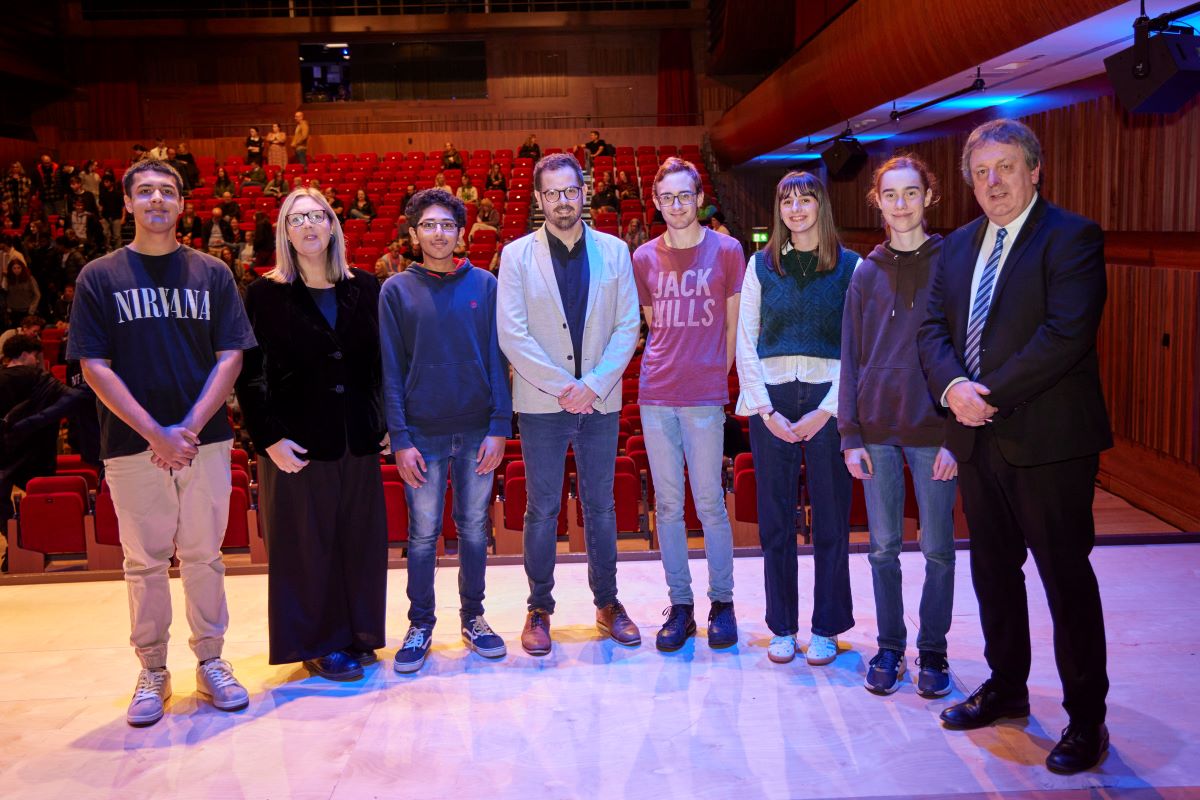Schools White Paper delivers real action to make sure every child fulfils their potential – Sector response

Any child who falls behind in maths or English will get the support they need to get back on track, as part of a pledge the Education Secretary will make to every parent in the country today (Monday 28 March), as he launches the first Schools White Paper in six years.
Schools will identify children who need help, provide targeted support via a range of proven methods such as small group tuition, and keep parents informed about their child’s progress.
The Parent Pledge will support the government’s Levelling Up mission for education, previously set out in the Levelling Up White Paper, for 90% of primary school children to achieve the expected standard in Key Stage 2 reading, writing and maths by 2030.
In 2019, only 65% of children achieved this standard, with the covid pandemic exacerbating challenges despite the incredible work of parents and teachers during this time.
A second ambition for secondary schools aims to see the national average GCSE grade in both English language and maths increase from 4.5 in 2019 to 5 by 2030.
The Schools White Paper sets out a series of new measures to support the delivery of these ambitions, including:
- Schools will offer a minimum school week of 32.5 hours by September 2023
- Ofsted will inspect every school by 2025, including the backlog of ‘outstanding’ schools that haven’t been inspected for many years
- By 2030 all children will benefit from being taught in a school in, or in the process of joining, a strong multi-academy trust, which will help transform underperforming schools and deliver the best possible outcomes for children
- At least £100m to put the Education Endowment Foundation on a long-term footing so they can continue to evaluate and spread best practice in education across the country
If achieved, the wider benefits of pupils in 2030 meeting the Key Stage 2 and GCSE ambitions are estimated to be worth at least £30 billion each for the economy.
Prime Minister Boris Johnson said:
“Literacy and numeracy are the building blocks of a world-class education. They unlock the learning, knowledge and skills that every child needs to succeed in later life.
“So today, we are making a pledge to every parent – if your child falls behind at school in either of these key subjects, their school will help them get back on track.”
“By making sure every child receives excellent teaching which helps them reach their full potential, we will spread opportunity and futureproof our mission to level up the country.”

Education Secretary Nadhim Zahawi said:
“This is levelling up in action. The Opportunity for All White Paper will deliver for every child, parent and family, living anywhere from rural villages, to coastal towns through to the largest cities, by making sure all children have access to a school that meets our current best standards, harnessing the incredible energy and expertise of the one million people that work in schools.
“Any child who falls behind in maths or English will get the support they need to get back on track, and schools will also be asked to offer at least a 32.5 hour school week by September 2023.
“We know what works in schools and we are scaling up to ensure that every child can expect interesting, enriching lessons. Parents rightly expect a world class education for their children and that is what we will deliver.”

Rt Hon Robert Halfon MP, Chair of the Education Select Committee said:
“The publication of the Schools White Paper could not have come sooner.
“The four key pillars of teacher development, improving curriculum standards especially with regard to literacy and numeracy, parental engagement and uniformity of school hours are a welcome ambition to help ensure the Government works to level-up education.
“Increasing parental engagement through the “parent pledge” will help break down long-standing and often complicated barriers that exist to help increase attendance, especially in relation to the 124,000 “ghost children” who have dropped out of the school system following the outbreak of the pandemic.
“I am particularly pleased to see the commitment made by the Department to establish a uniformity of school hours. It is my hope that this will mean pupils up and down the country will have more time to catch up on their lost learning from the pandemic, and to also develop their skills by exploring creative subjects like sport, drama and music.
“Not only will this benefit their mental health and resilience, but it will also improve their educational attainment and allow every child to climb the ladder of opportunity, regardless of their background or circumstance.”
Other plans in the White Paper to deliver on the missions for children’s attainment at the end of primary and secondary include:
- 500,000 teacher training and development opportunities by 2024
- £30,000 starting salaries to attract and retain the best teachers
- Payments to recruit and keep talented physics, chemistry, computing and maths teachers working in disadvantaged schools
- A register for children not in school to make sure no child is lost from the system
- Every school to have access to funded training for a senior mental health lead to deliver a whole school approach to health and wellbeing
- Oak National Academy becoming a government body with sole focus on supporting teachers to deliver the very best lesson content
- Up to 6 million tutoring courses by 2024 and action to cement tuition as a permanent feature of the school system
- The school system working as a whole to raise standards with trusts responsible for running schools while local authorities are empowered to champion the interests of children
The SEND and alternative provision green paper will launch tomorrow (Tuesday) and build on the Schools White Paper by setting out a national vision for more inclusive culture and practice in mainstream schools, helping the workforce to adapt to every pupil’s needs.
John Jolly, Chief Executive of Parentkind, said:
“Parentkind strongly welcomes the ‘parent pledge’ that is embedded at the heart of this white paper. Our organisation exists to give parents a voice in their child’s education, and our aim is to bring schools and parents closer together in partnership.
“I am delighted that the Education Secretary has taken notice of the research on parent voice, recognised the vital contribution of parents and sought to place parents at the front and centre of the schools paper.
“Children’s literacy and numeracy have been shown to improve with parental support, and making dedicated efforts to enable greater parental participation in children’s learning can only have hugely beneficial consequences for families and society.”

Dame Rachel de Souza DBE, the Children’s Commissioner said:
“Last year, I conducted the largest ever survey of children, The Big Ask, and the overwhelming message I got back from over half a million responses was that today’s generation are bright, outward looking, and aspirational, in every corner of England. They like school, and its absence over lockdown meant they relish the chance to be back.
“I welcome the commitment to making sure all children receive the help that they need to succeed, we should be ambitious for every child, regardless of their background, family circumstances or whether they need additional support. Analysis by my office this week tells us that ‘vulnerable’ and ‘disadvantaged’ children are less likely to go to a good school, and yet when they do, their outcomes are much better. We must now redouble our efforts and have a race to the top so that all children receive a fantastic education and springboard to happy, successful adulthoods.
“The commitments to making sure all children receive the help they need to succeed are important, in particular that every school will be able to access mental health training, that all schools will be inclusive of children with additional needs, and that we will have a national register to make sure no child can go missing from the system.”
Local authorities are to be permitted to establish trusts and gain the legal power to request their non-academy schools join a trust, where that is the right approach for local schools.
The government plans to support schools that have received two consecutive Ofsted judgements of below ‘Good’ to join strong trusts – a significant step up from the current requirement for Inadequate local authority maintained schools to do so.
The initial focus will be on schools in the 55 Education Investment Areas, as these are the locations where the most support is required area-wide.
The government will make £86 million available to grow and strengthen multi-academy trusts over the next three years, with a particular focus on Education Investment Areas. Across a subset of 24 priority Education Investment Areas – including all previous Opportunity Areas – which have some of the highest rates of disadvantage in the country, a further £40 million of additional funding is to be provided for bespoke interventions to address local needs, such as high absence rates.
As part of a review to launch in the summer looking at accountability and regulation of trusts, the department will consider how best to hold trusts accountable against a new strong trust definition, focused on the quality and inclusivity of the education they provide, how they improve schools and maintain their local identity, how they protect value for money for the taxpayer and how they develop their workforce.
Sector Response
Updated data published today shows pupils continue to make progress following the pandemic with the support of the education recovery programme, now worth nearly £5 billion. By Autumn 2021, the average primary school pupil was 1.9 months behind in maths compared to 2.8 months in the summer, whilst the average primary school pupil was 0.8 months behind in reading, compared to 0.9 months behind in the summer.
The new tools and interventions set out in the White Paper will make sure every teacher, school and trust in the country is focused on identifying children who remain at risk of not meeting their potential, and providing them the right combination of academic, pastoral and specialist support they need to thrive.

Bridget’s Phillipson MP, Labour’s Shadow Education Secretary, said:
“Once again we have a smoke and mirrors announcement from a government that has simply run out of ideas.
“Parents will be surprised to hear that a focus on helping every child develop good reading, writing and maths skills is a new discovery for the Education Secretary. This isn’t an add on that any parent should have to ask for, it’s the fundamentals of a good school system. Today’s ‘pledge’ acknowledges that 12 years of Conservative governments have failed to get the basics right.
“This White Paper is looking backwards, distracting from the business of teaching with yet more tinkering with school structures whilst offering nothing to change children’s day to day experience in the classroom.
“Labour has been listening to parents, pupils and school staff. We would be delivering our ambitious Children’s Recovery Plan with before and afterschool clubs and mental health support alongside tutoring. Labour is looking to the future, with plans for 6,500 new teachers filling skills gaps across the profession alongside embedding careers advice, work experience and digital skills for every child so they get a brilliant education which equips them with the skills they need for work and for life.”

Sir Peter Lampl, Chair of the Education Endowment Foundation and Chair of the Sutton Trust, said:
“Literacy and numeracy are the building blocks of a world class education, so the government is right to make them the priority. The pandemic has had a devastating impact on young people, and it is right that all – but especially those from low and moderate income backgrounds – are given the support they need to succeed.
“We are very enthusiastic about the parent pledge but we must recognise that it is a tall order. As we’ve seen from a number of research studies we have carried out, it is extremely difficult for young people to catch up once they have fallen behind.
“We are in favour of schools drawing support from peers and sharing best practice, but this must not be a distraction from what really matters: great teaching and leadership. The measures in the white paper to strengthen the recruitment, retention and development of teachers are absolutely crucial. Outstanding education requires outstanding teachers.
“We are delighted to see the re-endowment of the Education Endowment Foundation with at least £100m. I’m immensely proud of what the Education Endowment Foundation has achieved in its first decade. We have built a reputation as the trusted and authoritative source of high quality evidence used by school leaders and teachers across the country.”

Natalie Perera, Chief Executive of the Education Policy Institute (EPI) said:
“The White Paper contains some bold aims, and a number of welcome measures, such as extra support for in-school mental health services and additional monitoring of children who are not in school.
“But it seems unlikely that many of these bold pledges will in practice be met. Since the pandemic started, children have fallen behind in their learning, and the data published so far shows that there has been little catch up for secondary pupils and much bigger losses for the disadvantaged and those in the so-called levelling up areas of the North and Midlands. Our analysis shows that the government’s catch-up programme is not well funded enough to make good these learning losses and get the disadvantage gap closing again.
“The government seems to be placing a lot of weight on all schools being in a ‘strong multi-academy trust’ by 2030, but it is clear from our research that academisation is no ‘silver bullet’ for improving school performance and there may simply not be enough capacity to absorb thousands of schools into the higher performing MATs. The 32.5 hour school week, which amounts to a 9am-3.30pm day, will not make much difference to most children.”

David Laws, Executive Chairman of the Education Policy Institute (EPI), said:
“It is disappointing that there is no commitment to a really big reduction of the disadvantage gap between the poorest pupils and the rest, in the ambitions set for 2030.
“Disadvantaged children are already 18 months of learning behind other children by the time they take their GCSEs, and this gap had stopped closing before the pandemic and is now significantly wider.
“The government continues to talk of ‘levelling up opportunity’, but over the last two years poor children and those living in the North and Midlands have fallen further behind in both absolute and relative terms.
“The very large recent rise in inflation is another threat to these plans – it is already significantly reducing the real value of the government’s education spending. Public sector pay is also lagging behind private sector pay, and this could cause real problems for teacher recruitment and retention over the next few years. This is a worry given the government plans rightly place a high priority on quality teaching.
“If the government wishes to meet the White Paper aims, it may well need a further education recovery package, targeted on the pupils, schools and local areas which have missed out most.”

Professor Becky Francis, CEO of the Education Endowment Foundation (EEF), said:
“Leaving school with good grades in English and maths is a prerequisite for progressing onto good quality jobs and further study. But too often it is disadvantaged young people who miss out on these crucial qualifications.
“The ambition to lift GCSE grades across England is a welcome one. But within this we must focus on closing the GCSE grade gap between disadvantaged pupils and their classmates. Great teaching is the most powerful lever we have for achieving this. Every teacher should have access to high-quality and evidence-based development opportunities at every stage of their career. It is good to see plans to realise this at the heart of today’s White Paper.
“The Secretary of State has signalled his commitment to using, building and sharing evidence, so that every school has access to reliable information about ‘what works’. I’m pleased that the EEF will be re-endowed with at least £100m, putting us on a long-term footing so we can continue to evaluate and spread best practice across the country.
“It is our hope that the EEF remains a valuable and trusted source of support for all teachers and school leaders as they work to meet the needs of all their pupils, particularly those from disadvantaged backgrounds.”

Paul Whiteman, general secretary for school leaders’ union NAHT, said:
“No one would disagree with the ambition that every child should be supported to achieve their full potential. I am pleased that the white paper matches the ambition long shared by every teacher and school leader in the country.
“But to achieve this the government will need to step up with more than bold words. Headlines don’t educate children; professional teachers do that. I hope the ambition in the white paper will result in the support schools need. There has been a support deficit for far too long. Schools cannot do it alone.
“It also requires a focus on the policies that are likely to make the biggest difference to pupil outcomes. This is where the government’s white paper falls short. Commitment to adequate funding, access to support services or detail on how these bold ambitions will be achieved is sadly missing. Another round of talking big and supporting small will only cheat children and young people whilst damaging the country’s long-term prospects.
“The decision to focus on the length of the school day is a very strange one given that there is very little evidence to suggest that this will have any real impact on pupil outcomes. Not only that, but it’s a policy that virtually no-one seems to have been calling for, other than the DfE. If the government believes there are examples where schools are providing significantly less teaching time than the national average, then we would understand why they would want to explore this with them.
“However, the reality is that for many schools this will involve a significant amount of preparation and consultation for the sake of an extra five or ten minutes at the start or end of the day. The logistical and financial implications of changing the length of the school day could be significant for individual schools, and frankly that work will be an unnecessary distraction when it is likely to achieve so little. Schools need to concentrate on the urgent issues not the window dressing.
“The ambition to reform school structures is likely to be controversial. Successive government reforms have left us with an incoherent and messy school system – with different arrangements governing local authority schools and academies. But the ambition to tidy up the system risks being a distraction if the government fails to present a compelling case.
“Should the government resort to compulsion the ambition will become destructive. We cannot end up in another philosophical debate about academisation. It is incumbent upon the government to successfully answer the concerns of those schools and communities yet to see benefit in making the change. If the government wants to succeed in this the commitment to further engagement has to be meaningful. Working with the sector is the only way to design arrangements that will really benefit school improvement.
“The white paper provides no information on how many more School Trusts will be needed to achieve a fully-academised system, nor how many additional teachers and subject experts will be needed to staff them. Most importantly, it is not clear whether any assessment has been done on the impact that lifting the best staff out of school to take on new central roles will have on standards in the schools they leave behind. The capacity issues associated with this ambition cannot be ignored.
“Whilst future generations may be the winners from a unified school system, this generation of children may well find that they feel the brunt, not the benefit, of structural reform. Given the disruption to education over the last two years, parents and teachers alike may well be asking whether structural reform is really the answer, and more importantly, ‘why now?’
“Given the risks involved, it is welcome that government have reiterated their promise to work with the profession in developing plans further, to ensure they do indeed raise standards, not depress them.”

Lee Mason-Ellis, CEO of The Pioneer Academy comments,
“I was delighted to see a substantial financial commitment to the early year’s work force. The initial years of education are the most important in enable children to engage and become lifelong learners. Ensuring that our early years workforce is well trained will be of immense benefit to our young people.”
“At The Pioneer Academy we absolutely support the target for 90% of primary aged children to reach expected standards in reading, writing and maths. To enable this significant increases in real term funding, year on year, will be needed. It’s imperative that our pupils leave primary school equipped with the skills they need to thrive in secondary school and the wider world beyond it.”
“At The Pioneer Academy, we welcome the government’s desire for all schools to become part of Multi Academy Trusts. We know the schools in our trust benefit hugely from being part of our community; MATs enable teachers to work collaboratively across many schools, sharing best practice and reducing workload, to enable more time being focused on children’s learning needs. Thanks to our ability to negotiate financial contracts at scale and make the most of our funding, we have been able to fund all sorts of things for our schools, from free school uniforms, to free cultural trips and Christmas and Easter community events .”

Dr Mary Bousted, Joint General Secretary of the National Education Union, said:
“This is a White Paper which does not reflect on the mistakes of the past, does not address the problems of the Covid present and does not have the answers for the future. Its message is that the education of the future will be a souped-up version of what we have seen over the last decade. Schools and their students need better than that. This is not the vision of education recovery which is needed for England.
“Schools are being battered here and now by a storm of real problems. Funding levels are inadequate. Child poverty is increasing. Key indicators of attainment, such as the attainment gap, are moving in the wrong direction. Targets for teacher recruitment are not being met while low play and intense pressures of workload are leading teachers to leave in large numbers. Our curriculum and qualifications system is outdated and sells our students short. The pressure on budgets mean cuts to teaching assistants and welfare posts.
“The White Paper does not recognise the seriousness and depth of these issues. Even where it points to important problems, such as mental health, support for SEND and behaviour, it does not commit sufficient funding to them.
“Its main message is ‘academise, academise, academise’ and a reliance on multi-academy trusts which is simply not-evidence led. Last week the House of Commons Public Accounts Committee reported that the existing academy system lacked transparency and accountability and spoke of the ‘mysterious millions’ that disappeared into the coffers of favoured trusts. The White Paper presents this flawed and failing approach as the education of the future. Without convincing evidence for the ‘value added’ by academisation, it sets out a massive, costly and unwelcome programme of structural change. The White Paper does not recognise that the problems our system faces need to be addressed by bold, inclusive and compassionate thinking and by multi-agency working, strong support services, and well-resourced local authorities. The DFE needs to address the serious issues highlighted by the Public Accounts Committee about the academy system.
“The Department for Education (DfE) has not listened to the emerging consensus that the English system of curriculum and assessment needs fundamental modernisation. The concerns of teachers, researchers and international experts that our system promotes teaching to the test, narrows the curriculum and fails to engage learners have not reached the government. Instead, government aims to keep a failed system in place with the inevitable negative impact on children and young people’s mental health and wellbeing. It aims to keep a failed system in place and to require students and teachers to work ever harder to meet its demands. Expecting 90% of 11-year-olds to meet an arbitrary ‘expected standard’ in Maths and English at Key Stage 2 without giving any indication of the support that will be needed to achieve this target will immediately raise the temperature in the educational hothouse that schools have become. It will particularly affect SEND children whose SATs results ‘bake in’ their educational failure.
“Schools and parents have been waiting several years for government to address the very real crisis in SEND and the scandalous gap between what parents need for their child with SEND and what an underfunded system is able to provide. What is missing in the White Paper is an assurance by education ministers that they have secured a commitment from the Treasury to secure the funding that is key to the future of SEND – funding for support staff, funding for support services and teacher education.
“During the pandemic, schools demonstrated resourcefulness and initiative in responding to students’ social and educational needs and supported families. The White Paper has not properly listened to or learned from on this experience. It aims to make whole school system march to the beat of a hugely centralised plan, with DfE dogma trumping professional knowledge and the local context. Many local systems of collaboration that are working well and delivering results are discounted and ignored.
“The statement that every school will have an Ofsted inspection by 2025 is not so much a pledge of support as another turn of the screw, which will increase the strain on teachers without addressing the gaps and pressures in the system.
“It is fantasy thinking to focus on structures and top-down reforms as the route out of a health pandemic. This isn’t the way to support better outcomes for young people, address inequality, close gaps in learning or engage and motivate the teaching profession.”

Simon Carter, Director at RM, said:
“The Department for Education has released the much talked-about Schools whitepaper this morning that lays out the plans for the full academisation of English schools. Already, 80% of state secondary schools are part of an Academy Trust, with over 70% of the applications in the pipeline to become future Academies coming from primary schools. And whether you are supportive or not, it is clear that the Government are set on the march to universal academisation.
“Irrespective of your personal position, there is strong evidence that the centralisation of many education activities is a positive. From school meals to technology provision – it can lead to greater efficiencies, reducing pressures and strains from current over-stretched processes, resulting in beneficial outcomes for pupils and staff alike. Whilst some feel it can lead to a loss of autonomy, it comes down to a trade-off of whether the benefits exceed the concerns,
“Just like local authorities, the experience of being part of a trust can be variable. Not only does it give schools – the ones closest to pupils – more power to make the best decisions, it’s a chance to lean on one another for expertise and experience. Yet, from working with customers of all types, at RM we believe that there is a dynamic within many trusts that instils a strong camaraderie by being part of “one family”. There is a culture that is pre-disposed to collaborating with other schools, teachers and leaders – a sense of ‘belonging’ and being a ‘team’. I am really encouraged by seeing this sense of working together, learning from each other and seeking economies together that can only be helpful. At the end of the day, we are all here to ensure that our children receive the best education possible.”

Lee Elliot Major, Professor Social Mobility at the University of Exeter, said:
“Failure to acknowledge the impact that parents and the home learning environment play in shaping children’s outcomes has been a major shortcoming in previous efforts to tackle the national scandal of low literary and numeracy, so a parenting pledge then genuinely engages parents is to be welcomed.
“Any future attempts to improve basic skills will likely only succeed if there is a comprehensive strategy to identify, diagnose and respond appropriately to children falling behind in literacy and numeracy at every life stage.”

Geoff Barton, General Secretary of the Association of School and College Leaders, said:
“While there are a number of promising and helpful measures outlined in the white paper, we cannot escape the feeling that overall it is mechanistic and lacking in ambition.
“Disappointingly, this white paper lacks any big ideas for the future of the education system. The nearest it gets is its targets for improved results in English and maths by 2030, but the plan of how to achieve these targets is vague, and there does not appear to be very much in the way of funding to help schools deliver them.
“The white paper is also landing at a time when schools and colleges continue to be buffeted by the impact of the pandemic, with extremely high absence rates. This is taking a toll on both staff and pupils. The government must do more to recognise and support schools and colleges with these challenges, before heaping yet more pressure on them.
Parent Pledge
“The Parent Pledge seems like a policy gimmick designed to grab headlines. In reality, any child who falls behind in English and maths will already receive timely and evidence-led support and this is already communicated to parents via existing channels such as parents’ evenings.
“Schools already have robust assessment systems for tracking progress.
“The danger of the Parent Pledge is that it will build an expectation of an entitlement to various forms of additional support on demand. This is not realistic as schools have limited resources and have to meet the needs of all their students. We fear that this will simply create tensions between parents and schools, rather than helping them to work together.
A fully trust-led system
“We agree that the current school system in England is messy and confusing, and that this needs addressing.
“There are many successful multi-academy trusts doing excellent work, and there are many benefits of schools working together. We are not convinced, however, that collaboration can only be achieved through the model of multi-academy trusts. There are other forms of collaboration which can also work effectively.
“We do not think that a deadline for all schools to be in or joining a multi-academy trust is helpful. That said, we are pleased that the government intends to allow local authorities to establish multi-academy trusts.
90% target for reading, writing and maths by 2030
“Improving English and maths outcomes is a laudable ambition, but there is little recognition of the wider societal factors which affect those outcomes, such as the fact that nearly a third of children in the UK live in poverty. It is hard to learn when you are hungry, cold, poorly clothed and live in inadequate housing.
“Focusing so intensely on English and maths, important as those subjects are, is also a very narrow view of education. A truly ambitious white paper should have greater ambition for the whole curriculum. The current curriculum is crowded and lacks coherence between early years, primary and secondary education. Some of the government’s school performance measures have driven subjects such as Design and Technology and the creative arts to the margins. This white paper fails to grasp any of these issues.”
Sir Hamid Patel CBE, Chief Executive of Star Academies, said:
“At the heart of the White Paper is an unwavering commitment to improving the life chances of all our young people. High-quality teacher development, a knowledge-rich curriculum and personalised intervention are recognised as crucial to success. Renewed parent partnerships centred on children will help to create the conditions in which their talents can flourish.”
Sir Dan Moynihan, Chief Executive of Harris Federation, said:
“The White paper creates a coherent blueprint for the future development of schools, and represents the right way to proceed in a mature school led system.
“The additional resources and higher priority for SEND announced in the White Paper are very welcome and much needed. This will lead to more joined up and better provision for children in need.
“The increased academic aspiration in both primary and secondary schools are to be welcomed, especially the greater emphasis on using what works to improve standards in literacy and numeracy. The development and provision of free schemes of work and lesson plans will play a major role in reducing teacher workload and help free teachers up to focus on providing every child with a great education.”
Leora Cruddas CBE, Chief Executive of the Confederation of School Trusts, the sector body for academy trusts, said:
“The evidence is clear that the quality of teaching is the single most important in-school factor in improving outcomes for pupils. CST strongly supports the focus on evidence-informed professional development. There is no improvement for pupils without improvement in teaching, and no improvement in teaching without the best professional development for teachers. We believe School Trusts have the capacity and can create the culture and conditions where professional development can be most effective.
“CST supports the ambitions of this White Paper and the proposal for all schools to be part of a group in a strong trust. We particularly welcome the recognition that strong trusts will be solely accountable for school improvement. We look forward to working with ministers on the proposed regulatory review.”
Director of Children’s Services at Kent County Council, Matt Dunkley, said:
“Kent County Council very much welcomes the government’s ambitious reform agenda and the commitment to a stronger, fairer school system. We support the focus on helping each child meet their potential with the right support at the right time. We agree that putting evidence at the heart of school improvement activity is vital. We know this approach works as we have started to see the benefits from our jointly-funded project with the Education Endowment Foundation that is embedding evidence-informed practice in over a third of our schools and academies so far. We look forward to Local Authorities now having new opportunities to work with schools and academies to build further on this.
“Streamlining of the current fragmented school system is well overdue, and we appreciate the proposals to match Local Authorities’ responsibilities as system leaders with the appropriate powers to meet those responsibilities. The creation of a unified school system that works for all children, enables schools to benefit from collaboration whilst maintaining their own identity, autonomy and accountability to their local community is the ambition, and the prize at stake here.”
Annamarie Hassall MBE, nasen CEO and Chair of Whole School SEND, said:
“Giving each and every child access to a great education to reach their full potential is at the heart of the Schools White Paper. As a leading charity with over 56,000 members, representing over half of schools, nasen stands with children and young people, their families and the wider workforce.
“We must ensure education is meaningful and inclusive for all learners, led by trained and confident teachers in the classroom who can identify needs early on. High aspirations and equality for all must permeate all stages of the system – from the early years all the way through to supporting young people at age 25.
“Whilst we recognise the crucial importance of reading, writing and maths, it is vital that children and young people access a broad and balanced curriculum that provides opportunities to develop holistic and values-led aspects such as creativity to support all areas of their wellbeing. Access to a wide and varied curriculum is important for learners with SEND and additional needs at a time when the education system is still working on the ground to address the learning gaps that were widened as a result of the pandemic.
“The White Paper has a welcome focus on parental engagement. Understanding, respecting and listening to the lived experiences of parents, families and young people themselves is critical. This means involving them right from the start of any process and not at the middle or the end. It is unacceptable that families too often feel like they are battling the system, being passed from ‘pillar to post’ and having to share their experiences numerous times with little join-up or progress being made. We want people to be able to tell their story once and get the right professionals involved as early on as possible to take ownership, address challenges, coordinate provision and importantly meet the aspirations and improve outcomes for the learner at the centre.
“Whilst we welcome the government’s plans to develop the first ever National Register for children who are not in school, we remain concerned that some parents and carers of children and young people with SEND currently feel no option but to electively educate their children from home due to a lack of support and choices, or due to the impact of the pandemic on mental health and wellbeing.
“We are one year on from schools returning to full time learning following the COVID lockdowns and a period of immense challenge. In that time, we have seen a staggering impact on the mental health of children and young people and increased absences in schools. We agree that a national register of children who are home educated is a positive move, as is the importance of attendance in our schools, but in order to truly meet pupils’ needs, this ambition must be matched with sufficient resource, so that schools can provide the necessary support, whether that’s accessing specialist teachers and social workers or educational psychologists and speech and language therapists.
“To get it right for children and young people, we need strong joint commissioning and accountability and a shared language that is commonly understood by all. Teacher training and ongoing professional development opportunities that promote high quality teaching are essential, particularly given the importance of access to effective programmes of professional learning throughout teachers’ careers. We therefore welcome the White Paper’s focus on Initial Teacher Training, the Early Careers Framework and the National Professional Qualifications.”
nasen will continue the conversation with members, partners and the wider sector, framing the direction set out in the Schools White Paper and considering how this shapes the organisation’s response to related policy inquiries, the consultation period for the forthcoming SEND Review Green Paper (being published tomorrow) and the call for evidence on the effectiveness of the legislative framework provided by Children and Families Act 2014.
Annamarie continued: “The sector has seen significant debate around the role of academies, with School Census 2020/2021 data showing that over 4.5 million pupils are already learning in over 9,000 academies. With the government’s ambitions to convert the remaining maintained schools to academies by 2030, this feels more pertinent than ever. Academies and MATs account for around 50% of nasen’s community, and whilst we know that there is some excellent practice taking place in this space, we recognise there is room for consistency and improvement around inclusive practice.
“We know from experience that the role of the SENCO is critical – a fact which is clearly evidenced in our ongoing SENCO Workforce research with Bath Spa University. We want to see strong opportunities for SENCOs to be part of the strategic direction in MATs, with more opportunities for strong SENCO voices to be heard at senior leadership levels.
“With MATs often spanning several local authority areas, there are pressing challenges: inequalities in budgets and conflicting priorities are compounded by the fact that each local authority has its own unique processes and systems that don’t always ‘join up’ in a way that puts children and young people’s needs first.
“We welcome the investment in the specialist schools’ estate as part of the wider capital estate programme. Most importantly the expansion of specialist provision must follow on from strategic planning in local areas, mapping out current and anticipated future needs. We want to see full consideration to how specialist and mainstream schools in an area are enabled and funded to connect and share expertise. Expansion of physical space is only one part of the solution. Too many families feel a devastating lack of choice in their local area for learners with SEND and additional needs.”
Vivek Govil, Managing Director of Education at Oxford University Press said:
“It’s great to see the Government announce new measures and funding to help teachers increase the national average GCSE grade in English language and maths to 5 by 2030. We support this ambition but we also recognise that there is a significant mountain to climb. Research by Oxford University Press has found worrying evidence of a heightened ‘word gap’ – where a child’s vocabulary is below age-related expectations – following school closures over lockdown, and this problem is still affecting children today.
Overworked teachers are facing a series of challenges, from an attainment gap that has grown as a result of Covid to an ever-widening word gap and digital divide in their classrooms. They – along with parents and pupils – need resources that inspire and ensure maths and English education is not a casualty of the pandemic. Our report, Education: the journey towards a digital revolution, has outlined how digital tools will continue to play an important role in education, as well as where the government must continue working with education experts to shape future education policy to ensure it works for everyone. Governments need to work with institutions to address the digital learning divide, not just now, but for the future too.”
UNISON head of education Mike Short said:
“School catch-up plans will fail if the concerns of teaching assistants and other support staff aren’t urgently addressed.
“They’re a key element in tackling the education backlog for every school. But without a clear plan to recruit and hold on to them, out-of-touch ministers are hobbling the chances of millions of pupils in need.
“Schools can’t function without the dedication of support staff – like teaching assistants, caretakers and cleaners. Often the lowest paid staff members, many put their lives at risk to continue going into schools during the pandemic, ensuring vulnerable pupils and the children of key workers could carry on learning.
“By not mentioning them, ministers have shown that helping schools and pupils bounce back as quickly as possible is not their priority. Instead they’re wasting vital time and energy pushing through unnecessary programmes to create more academies.
“For the white paper not to recognise the pivotal role support staff play in the catch-up programme – or tackle their low pay as living costs soar – beggars belief.”











Responses